
The transport authority JTMT (Jerusalem Transportation Masterplan Team) has chosen the TransJerusalem J-Net Ltd consortium, consisting in the CAF Group and the construction firm Saphir, for the Jerusalem light rail project. The project value is 1.8 billion EUR.
The so-called Green line is a PPP (Private-Public Partnership) scheme and includes the construction of 20.6 kilometres of new track, 53 stations and a depot. Jerusalem opened its’ first light rail line, the red line in 2011. The new Green line uses the current Red Line on a stretch of 6.8 km. The contract also includes the design and supply of 114 low-floor Urbos trams (which will be operated as double-tractions) for the new Green Line and the refurbishment of the 46 units which are currently in service on the existing Red Line.
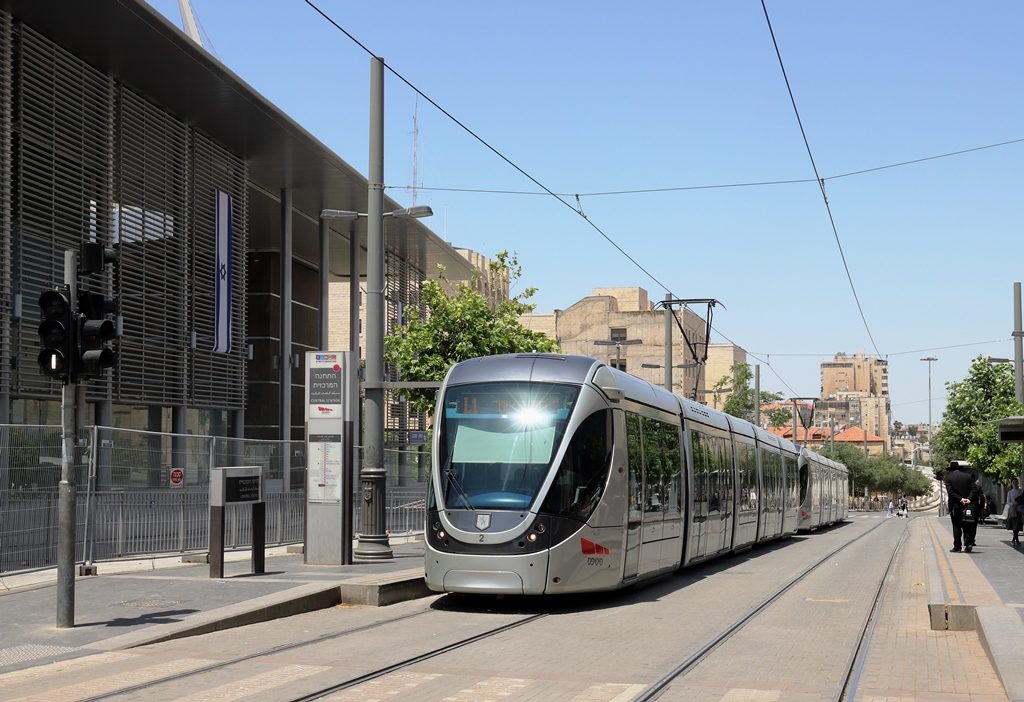
Alstom Citadis double-traction at the new Yitzhak Navon station of the new Tel Aviv – Jerusalem rail line – the new Green Line will cross the existing Red Line here I Photo: UTM 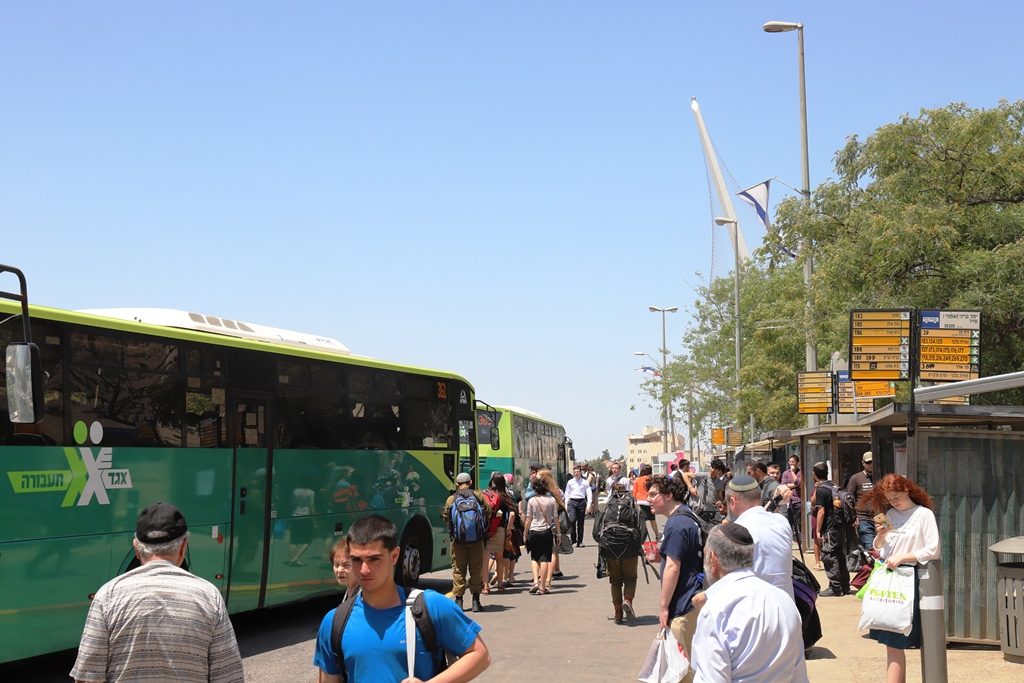
Current interchange situation at the Yitzhak Navon bus/ tram/ railway station I Photo: UTM 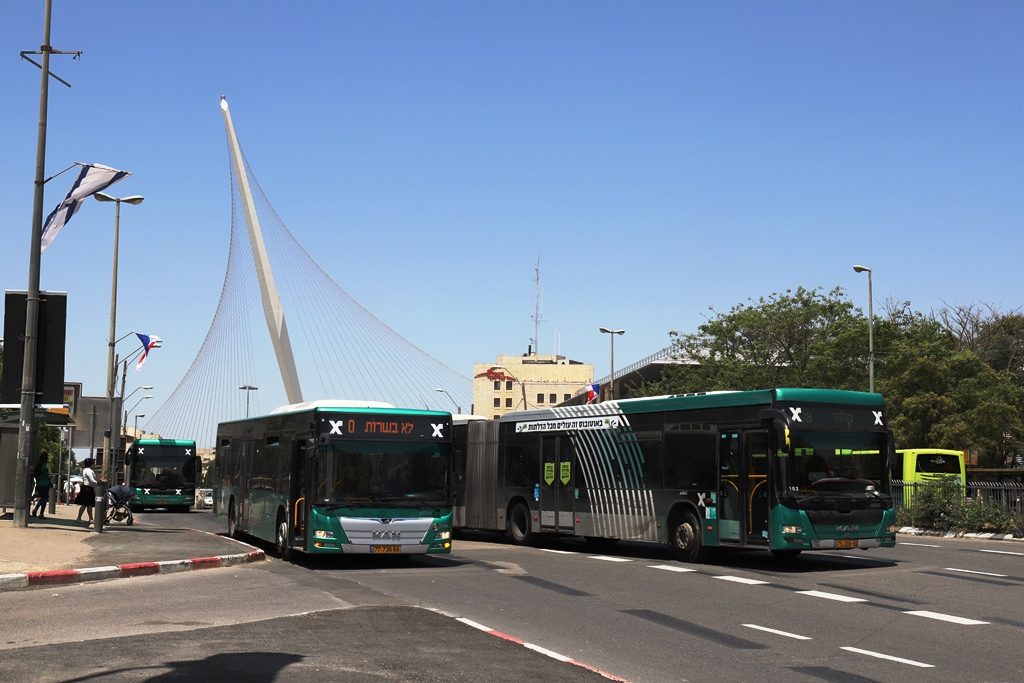
Today’s public transport in Jerusalem is dominated by MAN diesel buses which are operated by Egged – a cooperative – (additionally there are “arab” bus lines in the Eastern side of the city) – two Egged buses seen at the Chord Bridge which has been specifically built for the Red Line of the light rail I Photo: UTM
114 Urbos trams and 25 years of operation
The project scope of the consortium will also include the supply of the signalling, energy and communication systems, as well as the operation and maintenance of both lines for 15 and 25 years respectively, with the possibility of extending the term of operation. The CAF Group’s scope of this project exceeds 500 million EUR. The Group will also have a 50% stake in the company that will manage the operation and maintenance of both lines. The project is expected to be implemented this year with the new network fully operative by 2025.
The future network
The tram’s Red Line currently extends along 13.8 km with 23 stations distributed on the route, was inaugurated in 2011 and providing transport to over 145,000 passengers on average per day. The Green lines is expected to have a ridership of 200,000 passengers per day. It will link the two campuses of the Hebrew University of Jerusalem and continue south via Pat junction to Gilo while using a common section with the Red line in the city centre until the terminus of the Tel Aviv – Jerusalem railway station which was inaugurated in 2018.
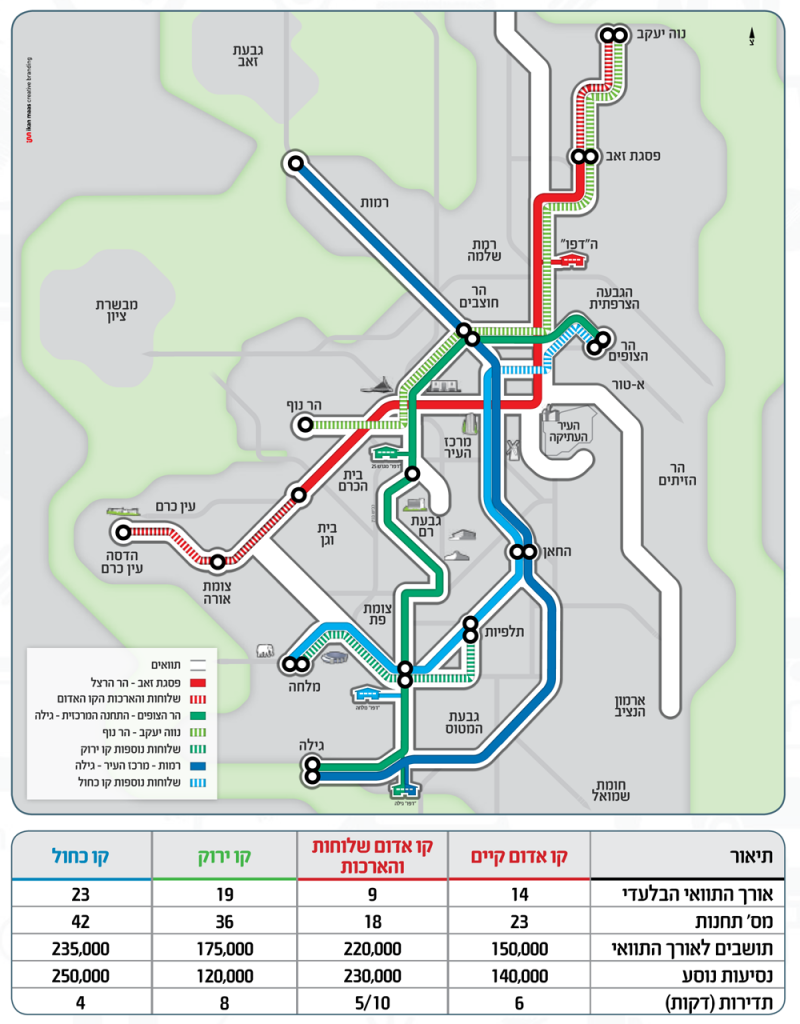
Of the eight entities that participated in the preliminary stages, only two consortiums submitted bids in the final stage. The other consortium consisted in the companies Shikun & Binui and Egged (Israel), CRRC (China), Comsa (Spain), Efatec (Portugal) and MPK (Poland). Siemens, Alstom and Bombardier are reported to have left the tender process at an earlier stage. The companies did not officially withdraw from the process due to political reasons. Nevertheless, the light rail development in Jerusalem has been criticized in the past as both lines run through the disputed area of East Jerusalem.
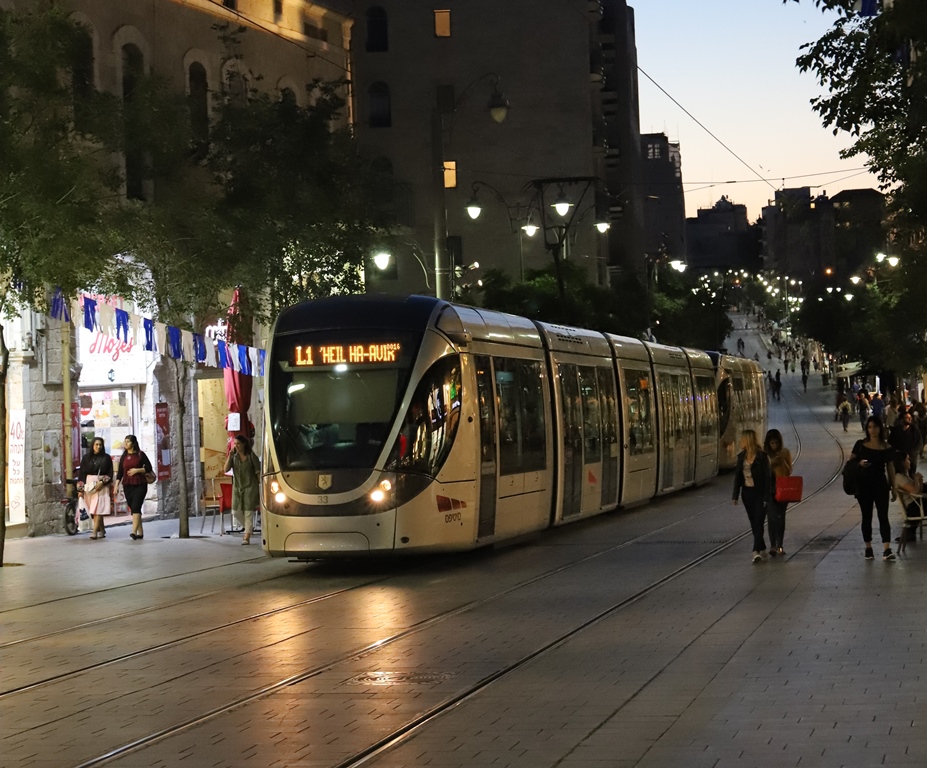
Sources: CAF/ Globes/ http://jet.gov.il
08.08.2019
